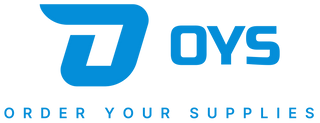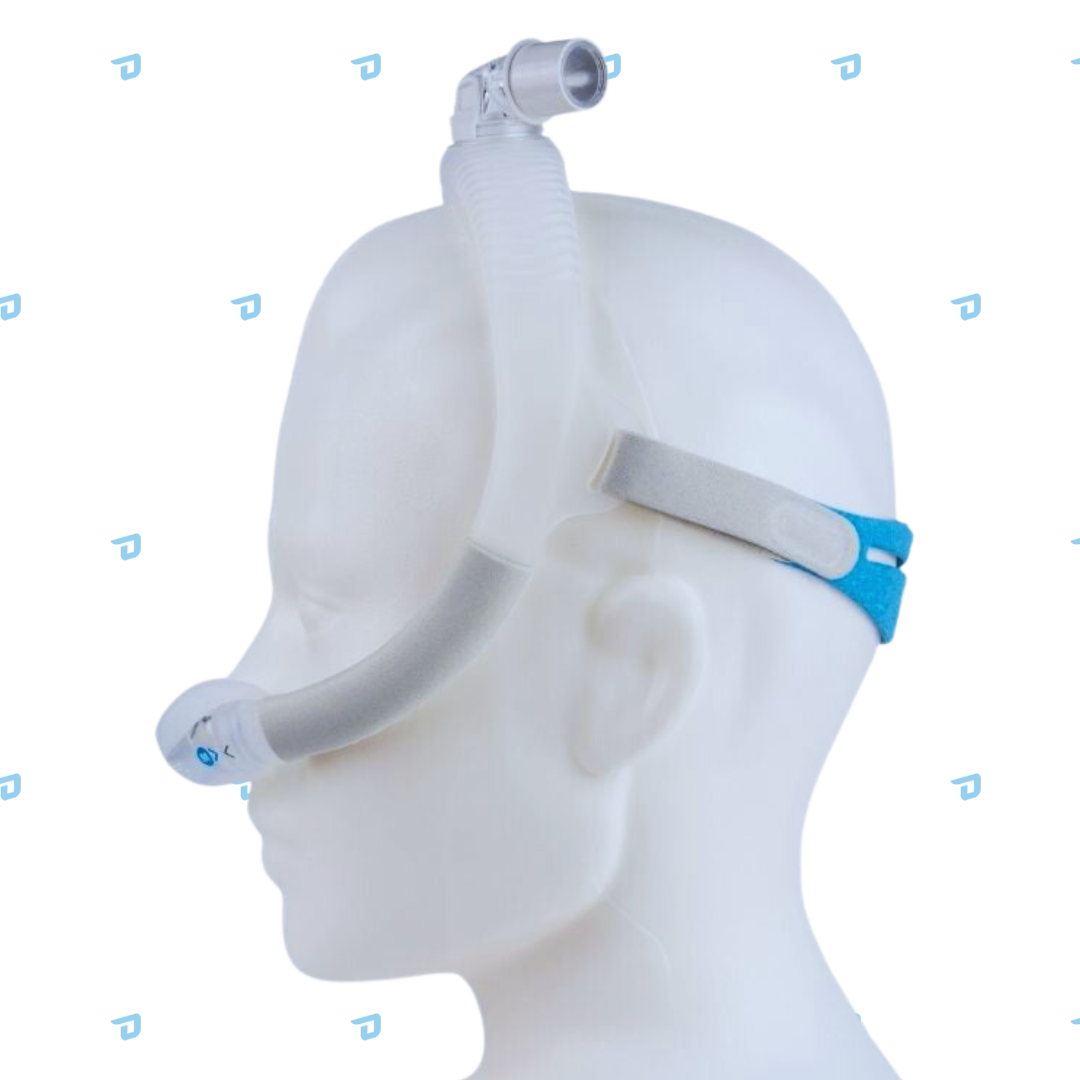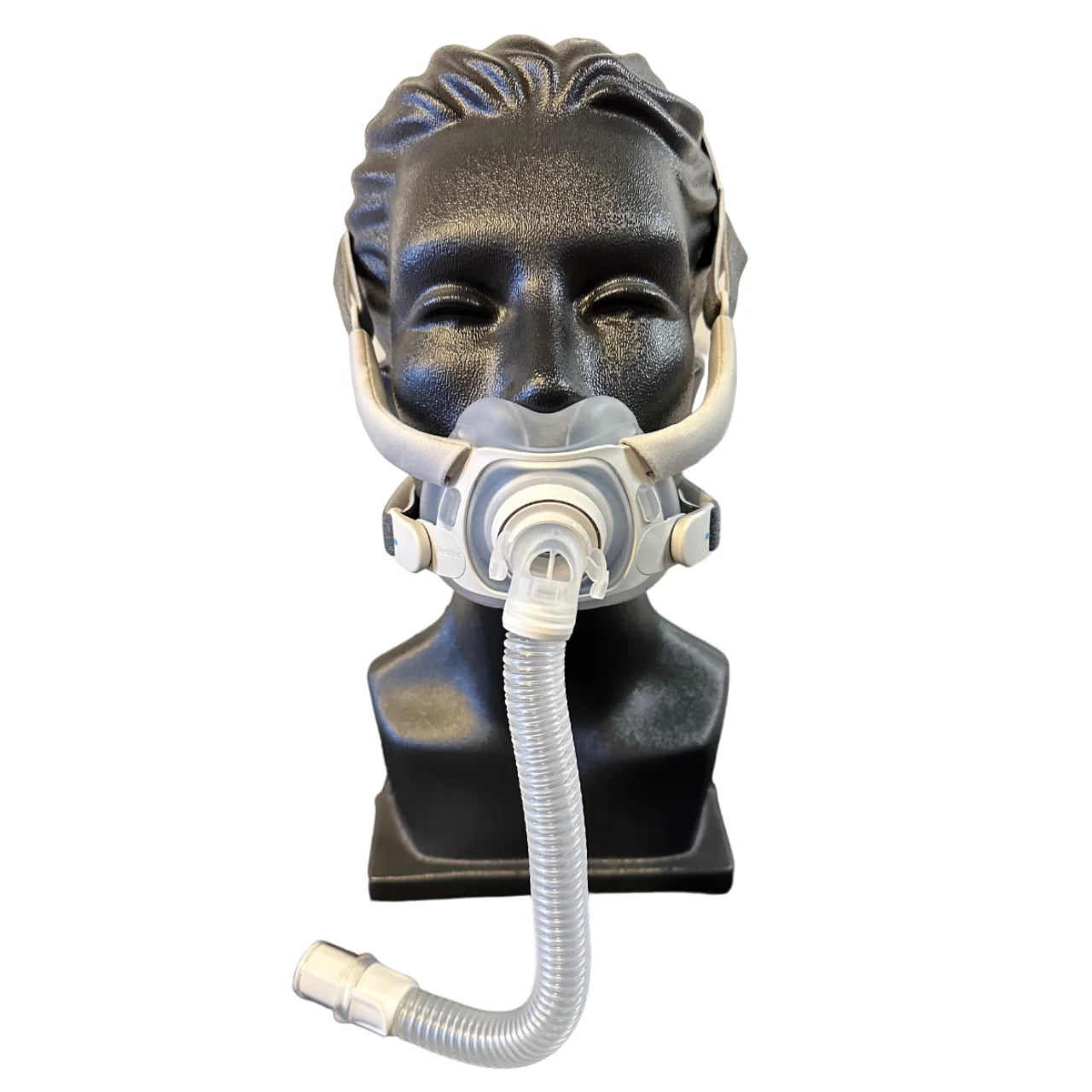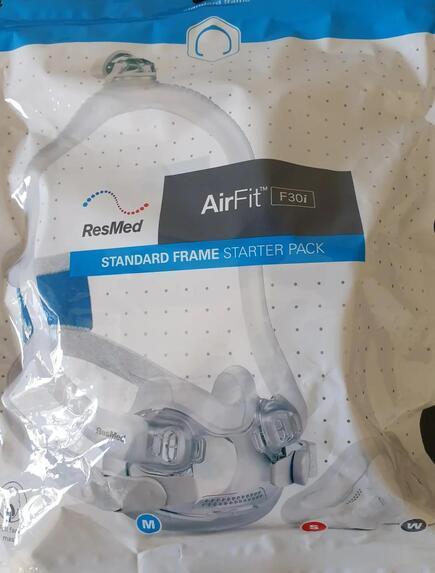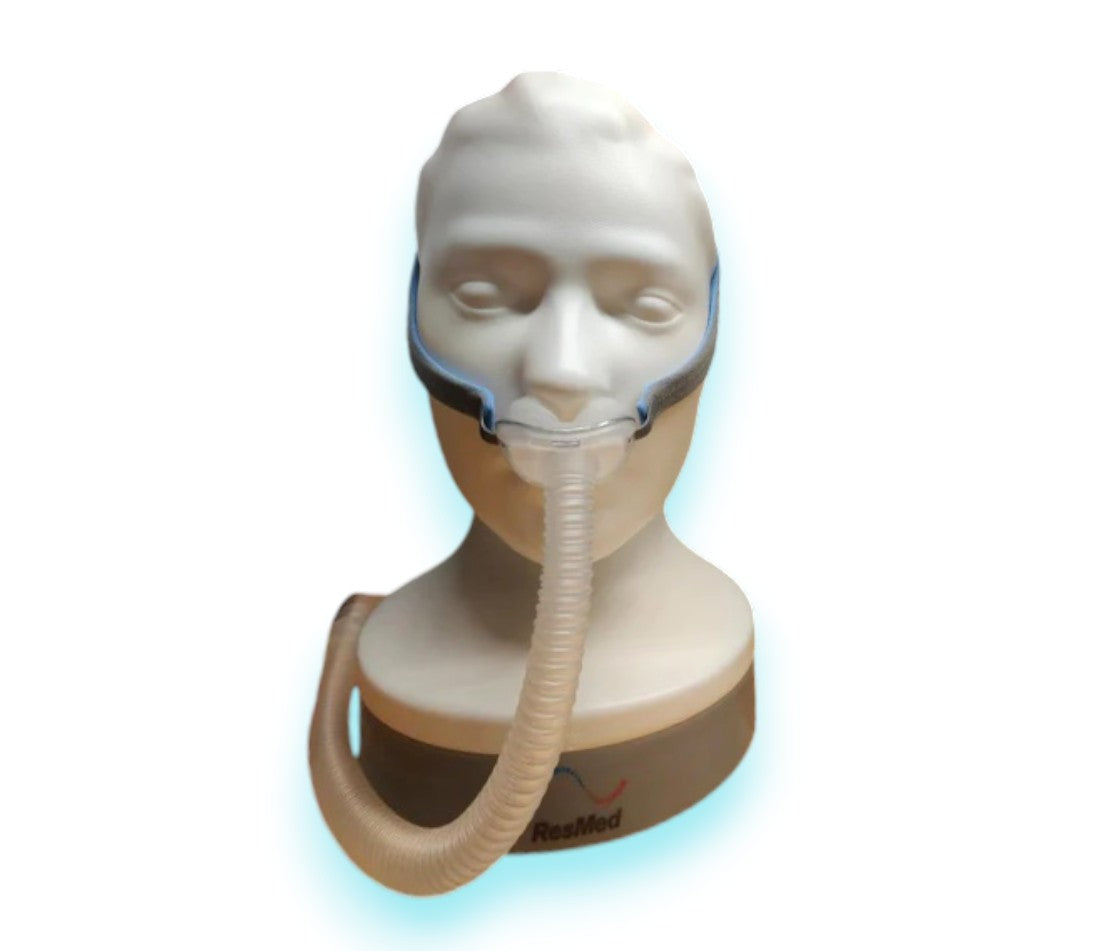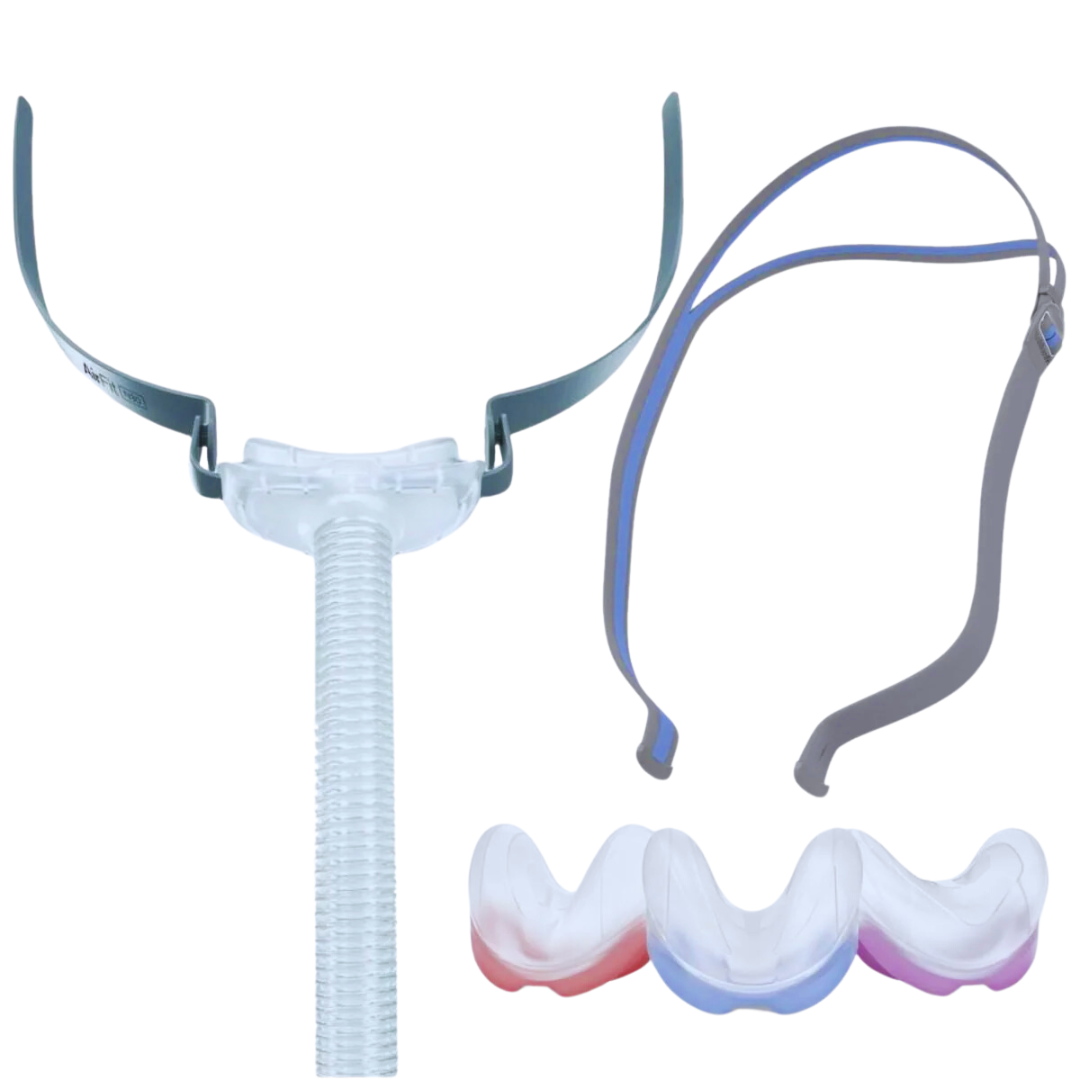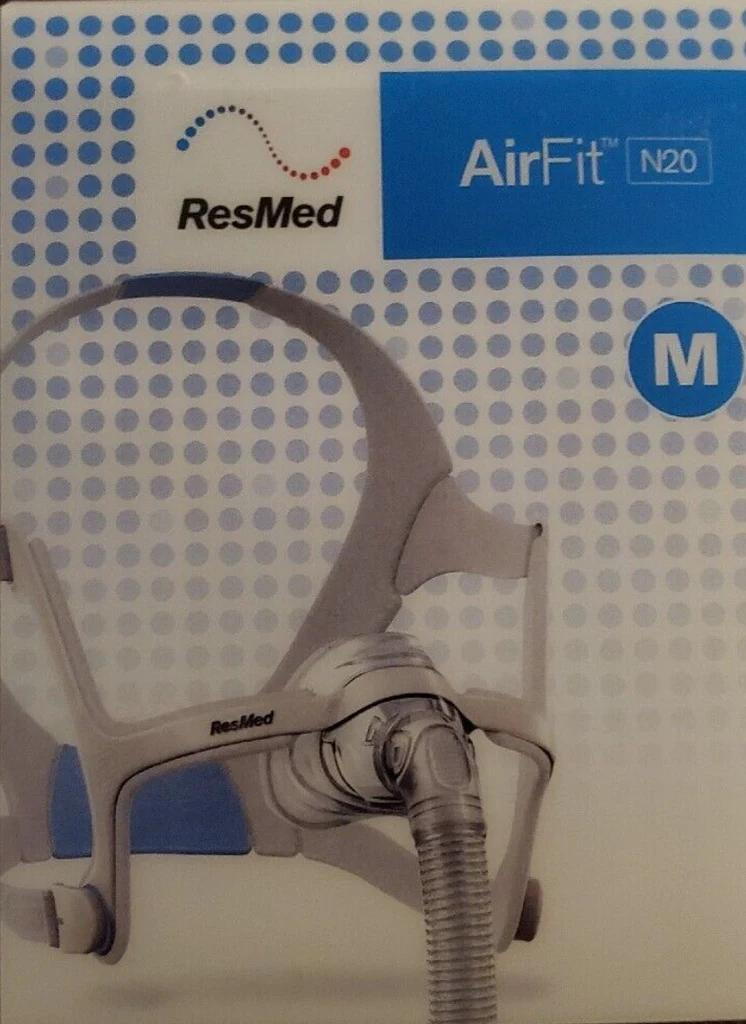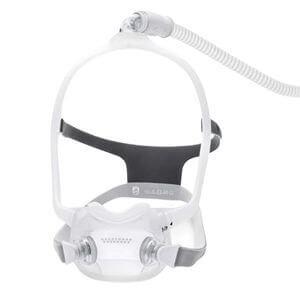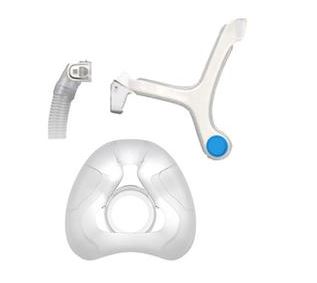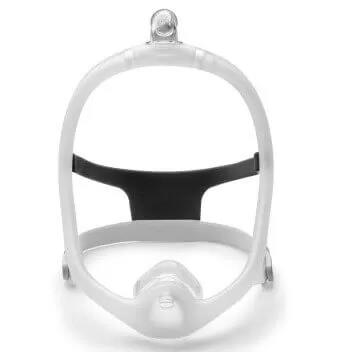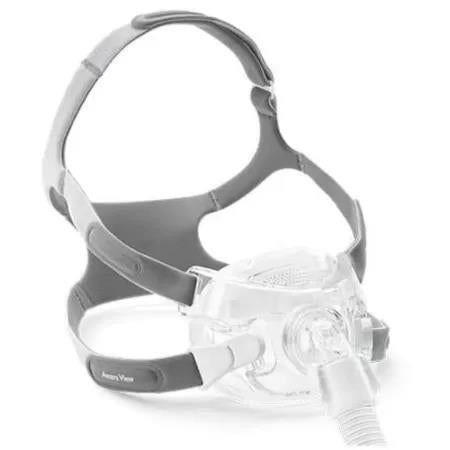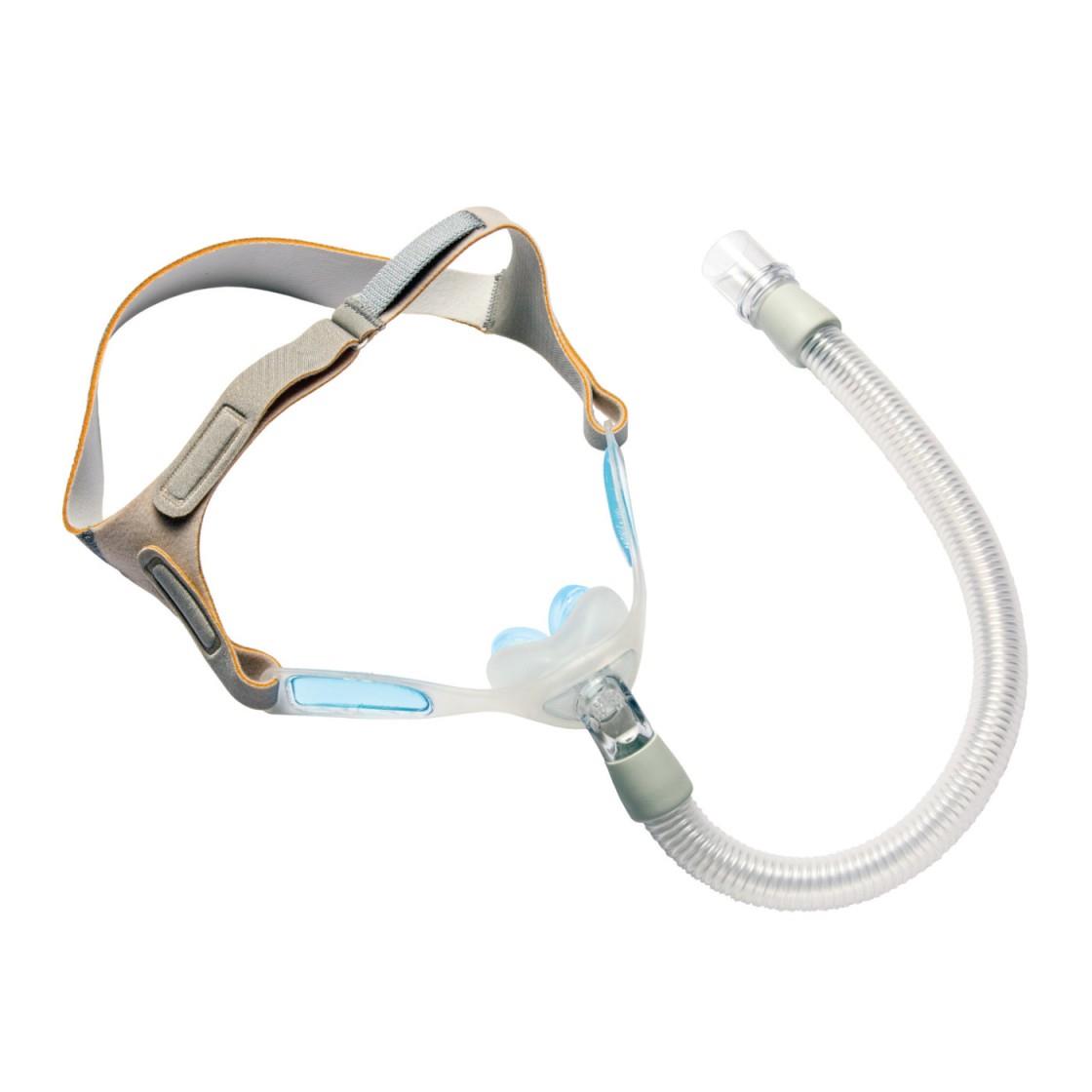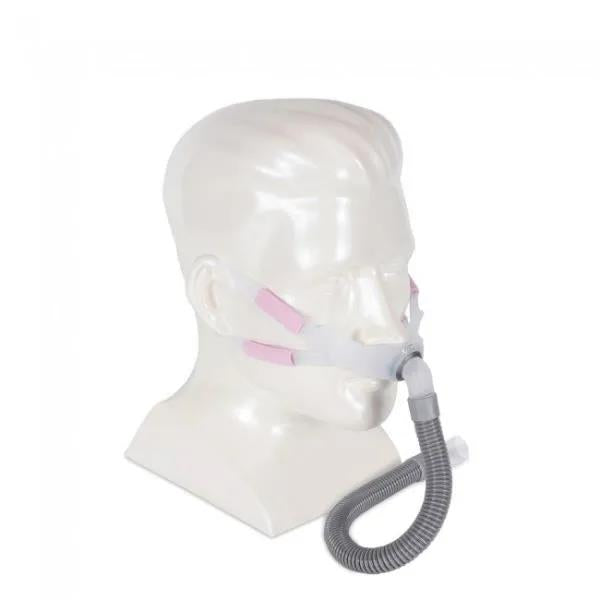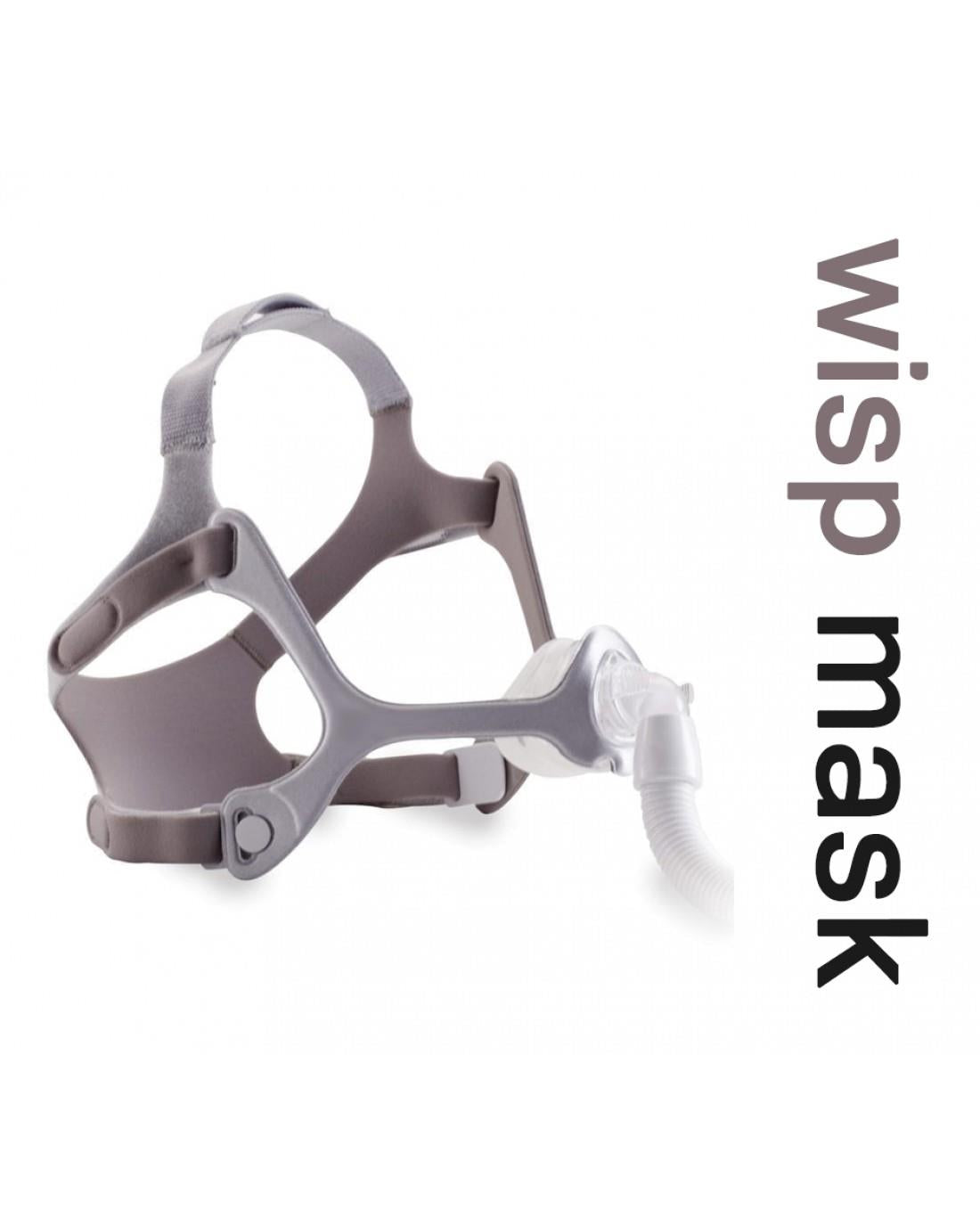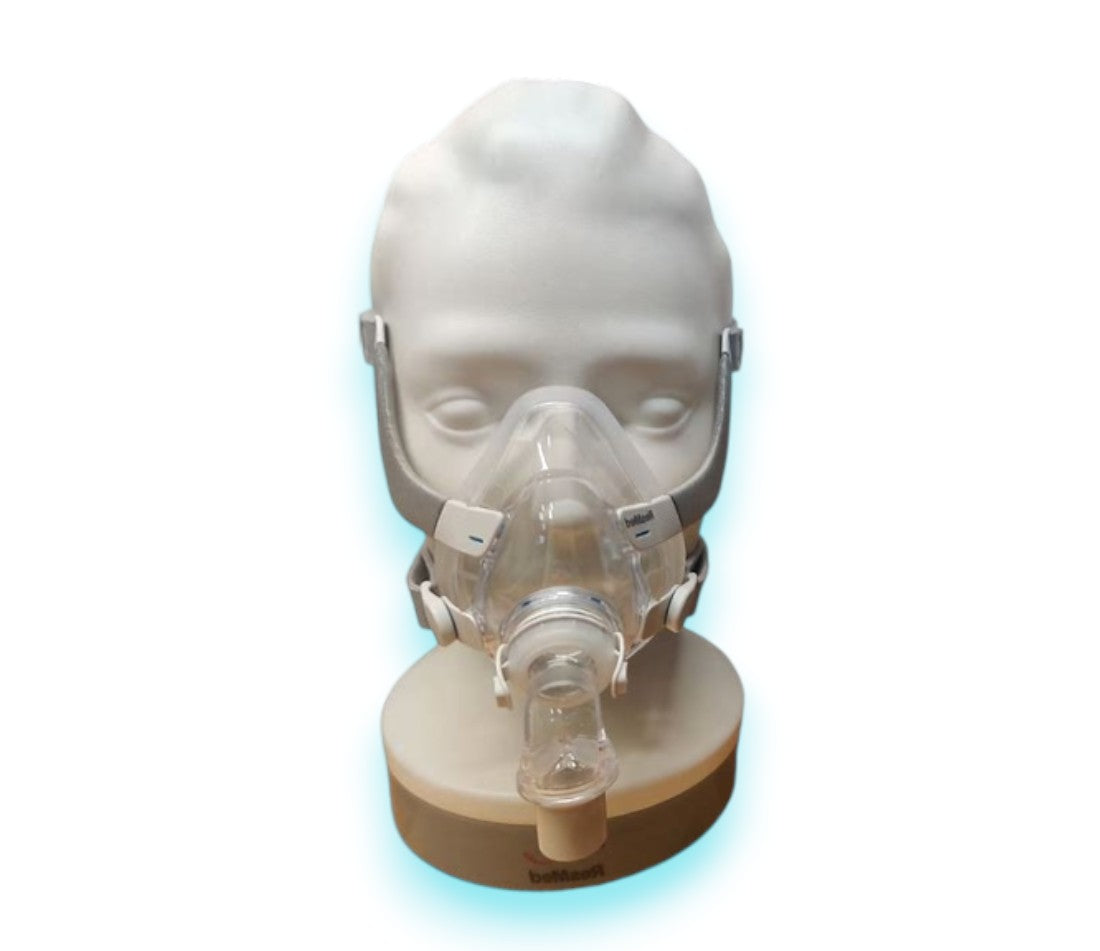Best CPAP Masks for Claustrophobia
CPAP Masks for Claustrophobic Patients
Discover comfort and freedom with our dedicated range of CPAP Masks for Claustrophobic Patients. Our selection features lightweight, minimal-contact masks with an open field of view, designed to alleviate any feelings of claustrophobia. Whether you're new to CPAP or an experienced user, you'll find a mask in our collection that not only meets your therapeutic requirements but also respects your... Read More
Best CPAP Masks for Claustrophobia
Claustrophobia can make the use of a CPAP mask challenging. For individuals with claustrophobia, wearing a mask can feel overwhelming and restrictive. However, CPAP therapy is a crucial treatment for sleep apnea, and finding the right mask is essential for effective treatment. There is a wide range of CPAP options for claustrophobic patients to avoid CPAP suffocation or CPAP claustrophobia. This collection focuses on the best CPAP masks designed to minimize feelings of claustrophobia or fear of suffocation while providing the necessary therapy.
Best CPAP Masks for Claustrophobia or Claustrophobic Patients
ResMed AirFit™ P10 Nasal Pillow CPAP Mask
Features:
- Minimal contact nasal pillow design.
- QuietAir™ woven-mesh vent technology for quiet operation.
- Dual-wall nasal pillows for a secure and comfortable fit.
- Lightweight, flexible tubing.
Benefits:
- Ideal for claustrophobic patients who need minimal contact with their face.
- Reduces noise to create a peaceful sleeping environment.
- One of the best CPAP nasal pillow mask as it offers a reliable seal to prevent air leaks.
- Easy to wear and move around during sleep, enhancing comfort.
Philips Respironics DreamWear Nasal CPAP Mask
Features:
- Innovative under-the-nose cushion design.
- Soft, silicone frame for a comfortable fit.
- Top-of-head tube connection for freedom of movement.
- Ideal for those to whom CPAP feels suffocating.
- Available in multiple sizes (S, M, MW, L).
Benefits:
- Reduces facial contact, minimizing feelings of claustrophobia.
- Comfortable and gentle on the skin, preventing irritation.
- Allows users to sleep in any position without disrupting the seal.
- Customizable fit to accommodate different facial structures.
ResMed AirFit™ N30i Nasal CPAP Mask
Features:
- Minimalist design with a cradle cushion that rests under the nose.
- SpringFit frame for a quick and accurate fit.
- QuietAir™ diffused venting for quiet operation.
- Top-of-head tubing connection.
Benefits:
- Minimizes contact with the face, reducing claustrophobic sensations.
- Ensures a secure fit without the need for constant adjustments.
- Keeps noise to a minimum, ensuring a peaceful sleep environment.
- Allows for a wide range of sleeping positions without compromising the seal.
Fisher & Paykel Brevida Nasal Pillow CPAP Mask
Features:
- Minimal contact design with adjustable headgear.
- AirPillow™ seal inflates to form a gentle, yet effective seal.
- Short tube design for more flexibility and freedom of movement.
- Available in multiple sizes (XS, S, M, L).
Benefits:
- Ideal for users who prefer minimal contact with their face.
- Provides a gentle seal that adapts to your movements during sleep.
- Enhances comfort and reduces the sensation of bulkiness.
- Easy to adjust and find the perfect fit for different facial structures.
Philips Respironics Pico Nasal CPAP Mask
Features:
- Minimal contact nasal mask with a compact design.
- Soft, silicone cushion for a comfortable seal.
- Easy-to-adjust headgear.
- Available in various sizes (S, M, L).
Benefits:
- Reduces the feeling of confinement with its minimal contact design.
- Provides a comfortable and secure seal to prevent air leaks.
- Simple to adjust for a personalized fit.
- Ideal for users who want a lightweight and low-profile mask.
ResMed AirFit™ F30 Full Face CPAP Mask
Features:
- Ultra-compact full face mask designed to fit under the nose.
- Magnetic clips and quick-release elbow for easy use.
- Available in sizes tailored for men and women.
Benefits:
- Ideal for users who need a full face mask but want minimal facial contact.
- Ensures a comfortable fit with minimal air leaks.
- Easy to assemble, clean, and maintain, enhancing user convenience.
- One of the best CPAP masks for women.
Philips Respironics DreamWear Full Face CPAP Mask
Features:
- Under-the-nose full face cushion design.
- Top-of-head tube connection for unrestricted movement.
- Soft, silicone frame for a gentle and comfortable fit.
- Available in multiple sizes (S, M, MW, L).
Benefits:
- Ideal for claustrophobic patients who require full face coverage with minimal contact.
- Allows for freedom of movement without disturbing the seal.
- Ensures a comfortable fit that prevents irritation and pressure points.
- Simple to clean and maintain, promoting better hygiene.
ResMed AirTouch™ N20 Nasal CPAP Mask with Headgear
Features:
- Memory foam cushion for a soft and adaptive seal.
- Quick-release elbow for easy disconnection.
- Flexible, adjustable headgear for a secure fit.
- Available in multiple sizes (S, M, L).
Benefits:
- Provides a soft and comfortable seal that adapts to the user's facial contours.
- Easy to take on and off without disrupting the setup.
- Ensures a snug fit that prevents air leaks.
- Memory foam cushion enhances comfort for sensitive skin.
Types of CPAP Masks and Their Benefits for Claustrophobic Patients
Nasal Pillow Masks
Design and Fit: Nasal pillow masks are the least intrusive type of CPAP mask. They feature small, lightweight cushions that sit at the entrance of the nostrils, secured by a headgear strap that goes around the head.
Benefits for Claustrophobic Patients:
- Minimal Contact: The nasal pillow masks have minimal facial contact, which is beneficial for claustrophobic patients as they don't cover the nose or mouth.
- Open Field of Vision: These masks allow users to wear glasses, read, or watch TV before bed, helping to ease the transition to sleep.
- Lightweight and Comfortable: The design is typically lightweight and less bulky, making it more comfortable and less restrictive.
Examples:
- ResMed AirFit P10 Nasal Pillow CPAP Mask
- Philips Respironics DreamWear Nasal Pillow CPAP Mask
Nasal CPAP Masks
Design and Fit: Nasal masks cover the nose from the bridge to the upper lip. They are held in place by a headgear strap that wraps around the head, providing a more secure fit than nasal pillow masks.
Benefits for Claustrophobic Patients:
- Less Coverage: While they cover more area than nasal pillow masks, they still avoid covering the mouth, making them less claustrophobic than full-face masks.
- Variety of Sizes and Fits: Available in various sizes to fit different facial structures, ensuring comfort and effectiveness.
- Effective for High-Pressure Settings: Nasal masks can handle higher pressure settings, which is beneficial for patients needing more intense therapy.
Examples:
- ResMed AirFit N20 Nasal CPAP Mask
- Philips Respironics DreamWear Nasal CPAP Mask
Full Face Masks
Design and Fit: Full face masks cover both the nose and mouth, secured with a headgear strap. They are recommended for patients who breathe through their mouth during sleep or have nasal obstructions.
Benefits for Claustrophobic Patients:
- Secure Fit: Ensures a stable seal even for those who move a lot during sleep or need high pressure.
- Reduced Dry Mouth: Prevents dry mouth by covering the mouth and providing continuous airflow.
- Advanced Designs: Modern full-face masks, like the ResMed AirFit F30, have compact designs that minimize contact and provide a clear field of vision, reducing feelings of claustrophobia.
Examples:
- ResMed AirFit F30 Full Face CPAP Mask
- Philips Respironics DreamWear Full Face CPAP Mask
Tips for Overcoming Claustrophobia with CPAP
Choose a Fit Pack
Many claustrophobic patients often complaint about CPAP anxiety or CPAP panic attacks while using the mask, so to avoid this it is important to choose the right mask for you. When selecting a new CPAP mask, opt for a Fit Pack instead of a standard mask. Fit Packs come with multiple cushion sizes, allowing you to test each one and find the perfect fit. While sizing guides are helpful, you might discover that a slightly smaller or larger cushion provides a more comfortable and effective seal, enhancing your sleep quality and therapy experience.
Familiarize Yourself with the Mask During the Day
To ease into using a CPAP mask, wear it during the day while performing everyday activities. Put on your mask while watching TV, reading, or doing household chores. This practice helps your brain associate the mask with relaxation and normalcy, reducing feelings of claustrophobia when it's time to sleep. Additionally, using your CPAP machine during daytime naps can help you get accustomed to the sensation without the pressure of falling asleep at night.
Utilize the Ramp Feature
Most CPAP machines come with a ramp feature that gradually increases the air pressure over a set period. Start your therapy at a lower, more tolerable pressure, allowing you to fall asleep before the machine reaches the prescribed level. This gradual increase can significantly reduce the sensation of pressure-related claustrophobia, making it easier to adapt to your CPAP therapy.
Approach with Positive Mindset
Approaching CPAP therapy with a positive mindset is crucial. Instead of viewing your CPAP equipment as a nuisance, recognize it as a vital tool for improving your overall health. Remember that consistent use of your CPAP machine can lead to better sleep, increased energy levels, and a reduced risk of serious health complications like heart disease and stroke. By focusing on these benefits, you'll be more motivated to push through any initial discomfort.
Use Relaxation Techniques
Incorporate relaxation techniques into your routine to help calm your mind and body before bedtime. Deep breathing exercises, meditation, or listening to soothing music can help reduce anxiety and make it easier to wear your CPAP mask. Over time, these techniques can become part of a relaxing bedtime ritual that eases your transition to sleep.
Customize Your Sleep Environment
Create a comfortable and soothing sleep environment to complement your CPAP therapy. Ensure your bedroom is cool, quiet, and dark. Consider using a white noise machine to mask any sounds from your CPAP machine. A comfortable sleep environment can enhance your overall therapy experience and help you relax more easily.
Seek Support
Don't hesitate to reach out for support if you're struggling with CPAP therapy. Talk to your healthcare provider about any issues you're facing. They can offer practical advice and adjustments to your therapy. Joining a CPAP support group, either online or in person, can also provide valuable insights and encouragement from others who are going through similar experiences.
Tips for Choosing the Best CPAP Mask for Claustrophobia
Choosing the right CPAP mask is crucial for individuals with claustrophobia. The right mask can make the difference between a successful therapy experience and one filled with anxiety and discomfort. Here are detailed tips for selecting the best CPAP mask to help manage claustrophobia:
1. Consider Your Breathing Style
Mouth Breathers
Full Face Masks: If you breathe through your mouth while sleeping, consider a full face mask that covers both your nose and mouth. Modern designs like the ResMed AirFit F30 is the best face mask for claustrophobia as it minimizes facial contact and provide a clear field of vision.
Nasal Breathers
- Nasal Masks: If you breathe through your nose, a nasal mask like the ResMed AirFit N20 may be ideal. It covers only the nose and provides a secure seal without excessive bulk.
- Nasal Pillow Masks: These masks, such as the ResMed AirFit P10, rest at the entrance of your nostrils, offering minimal facial contact and a lightweight design.
2. Fit and Comfort
Custom Fit
Multiple Sizes: Choose a mask that offers various sizes to ensure a comfortable and secure fit. A well-fitted mask reduces the feeling of being confined and prevents air leaks.
Fit Packs: Consider masks that come with multiple cushion sizes (fit packs), allowing you to try different options and find the best fit.
Soft Materials
- Comfortable Seals: Look for masks with soft silicone or gel cushions that conform to your facial contours without causing pressure points.
- Flexible Headgear: Ensure the headgear is adjustable and made from soft, flexible materials that provide a comfortable fit without being too tight.
3. Design Features
Minimal Facial Contact
- Under-the-Nose Design: Masks like the Philips Respironics DreamWear Nasal CPAP Mask have an under-the-nose design that minimizes contact with the face and nose bridge, reducing irritation and pressure.
- Open Field of Vision: Opt for masks that allow you to read or watch TV before bed. This feature helps ease feelings of confinement and makes the mask less intimidating.
Lightweight and Low Profile
- Lightweight Masks: Masks with a lightweight design, such as the ResMed AirFit P10, reduce the sensation of bulkiness and discomfort, which can help claustrophobic patients acclimate more easily.
- Low Profile: A mask with a low profile does not obstruct your view and feels less intrusive.
Noise Levels
- Diffused Vents: Choose masks with diffused exhalation ports that minimize noise, ensuring a peaceful sleep environment for you and your bed partner. Quiet masks are less likely to disrupt your sleep and increase anxiety.
Ease of Use
- Simple Design: Select masks that are easy to assemble, disassemble, and clean. Masks with fewer parts are generally easier to handle and maintain, which is beneficial for those new to CPAP therapy.
- Quick-Release Features: Look for masks with quick-release mechanisms, such as magnetic clips or quick-release elbows, which allow for easy removal without disturbing your setup.
Why Choose Us
1. Expertly Curated Selection
At Order Your Supplies, we understand the unique challenges faced by claustrophobic patients using CPAP masks. Our collection of CPAP masks for claustrophobic patients is expertly curated to ensure you find the perfect fit that maximizes comfort and minimizes anxiety. We offer a diverse range of masks, including nasal pillow masks, full face masks, and innovative designs, all selected to address the specific needs of those who experience claustrophobia.
2. Quality and Comfort
We prioritize quality and comfort in every product we offer. Our CPAP masks are sourced from top manufacturers like ResMed and Philips Respironics, known for their reliability and advanced technology. Each mask in our collection is designed to provide an effective seal, reduce facial contact, and ensure a comfortable fit, helping you to overcome feelings of claustrophobia and achieve a restful night’s sleep.
3. Personalized Customer Service
Our dedicated team of CPAP specialists is here to assist you every step of the way. We provide personalized customer service to help you choose the best CPAP mask for your specific needs. Whether you have questions about mask sizes, features, or compatibility, our knowledgeable staff is ready to provide expert advice and support.
4. Competitive Pricing
We believe that high-quality CPAP therapy should be accessible to everyone. That's why we offer competitive pricing on all our CPAP masks and accessories. Our goal is to provide you with the best value without compromising on quality, ensuring that you receive the most effective treatment for your sleep apnea and claustrophobia.
5. Fast and Reliable Shipping
We understand the importance of timely delivery for your CPAP supplies. Order Your Supplies offers fast and reliable shipping options to ensure that you receive your CPAP mask and accessories quickly. Our streamlined shipping process ensures that your orders are processed efficiently, so you can start experiencing the benefits of your new CPAP mask as soon as possible.
6. Satisfaction Guarantee
Your satisfaction is our top priority. We stand behind the quality of our products and offer a satisfaction guarantee. If you are not completely satisfied with your purchase, our customer service team is here to assist with returns or exchanges, ensuring that you find the perfect CPAP mask for your needs.
Choose Order Your Supplies for a reliable, comfortable, and supportive CPAP therapy experience tailored to help you overcome claustrophobia and improve your sleep health.
FAQs
Our committed team is available to support you through every step of your treatment journey.


